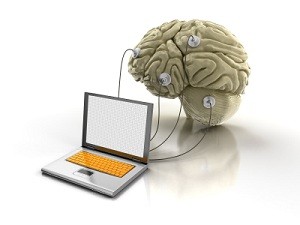
Science changes, just like everything else in life. First we understand things one way, then we begin to see where we were wrong and we begin to understand life a different way. According to Thomas Kuhn, the historian of science who wrote the influential book The Structure of Scientific Revolutions (1962), a paradigm is a theory, or worldview, that dominates a particular field of science at any given time. Paradigms influence which questions scientists ask and how they interpret their data. So, for example, back in the 1690’s, unexplained illnesses and difficulties were widely believed to be the result of witchcraft and many were put to death because they were unable to prove their innocence. Similarly, in the ancient world, diseases were often thought to be caused by miasma or “bad air.” A paradigm will hold sway until enough anomalous or disconfirming data accumulates to cause the scientific community to question the exiting zeitgeist and eventually change it out for a new way of understanding. The paradigm of miasma went unquestioned until a sufficient amount of evidence accumulated to cause it to be discarded in favor of the modern germ theory, the notion that many diseases are caused by microscopic organisms or pathogens. And in every generation, people believe they understand completely, that they have got hold of absolute truth. We think that now, don’t we? But I wonder what changes to this paradigm might be evident 100 or 1000 years from now? It is humbling to remember that the ancients felt every bit as confident of their paradigms as we do of ours. Yet even our own paradigms are shifting and changing. The institute of medicine estimates that it takes about 15 years, even in today’s internet age where information can be disseminated globally in a nanosecond, for new scientific discoveries to inform clinical practice. Thus, the gap between science and practice persists.
For several decades now, the field of mental health has been dominated by a dichotomous paradigm—a binary worldview where “mental” experiences and emotions are considered different than “physical” problems and experiences. In this view, the brain is likened to a motherboard and biochemistry is like the circuits that communicate between motherboard and software. But data is accumulating that contradicts this worldview and strains our use of the computer metaphor. New research shows, for example, that unlike motherboard and software, the physical structure of the brain actually changes in response to changes in thought and behavior. Habits of thought are behaviors, and our habits of thought make a very big difference in how we experience life. Science is just beginning to document that, in fact, changing habits of thought—such as with psychotherapy or mindfulness training, for example—actually changes the physical structure and chemistry of the brain. Currently, there is no software that I am aware of that is capable of changing the physical structure of the motherboard by changing the data that is input.
We are beginning to emerge from a dark age when the dominant paradigm explained everything, from difficulty paying attention to emotional pain, as a medical disease necessitating pharmaceutical intervention. There is a certain comfort in this paradigm. If difficult emotions and behaviors are “diseases” then perhaps blame is not an issue. But what if we moved away from a culture of blame toward a culture of acceptance and non-judgmental problem-solving instead? Then perhaps we could take responsibility for changing our brains without needing to blame anyone. There could be comfort in knowing that by beginning the long slow work of changing my habits of thought, and my habits of relating, I could change how I experience life. There could be hope in knowing that the skills for regulating emotional experience, the skills for getting more pleasure from life and from relationships, could be learned. For those who don’t like to learn, or those who find the long slow slope of learning curves frustrating, this new paradigm might not be such good news. And for them there is always a pill. But for those who are willing to embrace the frustrations of learning new habits with patience, then this new paradigm is full of hope and optimism—and the future is full of opportunity.
Related Articles:
Help! My Brain is Betraying Me!: Intrusive Thoughts in Motherhood
Can Therapy Affect the Brain?
© Copyright 2011 by Sara Rosenquist, PhD, ABPP. All Rights Reserved. Permission to publish granted to GoodTherapy.org.
The preceding article was solely written by the author named above. Any views and opinions expressed are not necessarily shared by GoodTherapy.org. Questions or concerns about the preceding article can be directed to the author or posted as a comment below.
